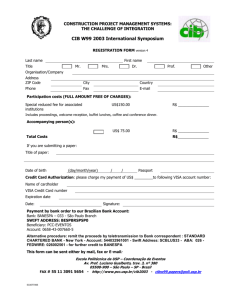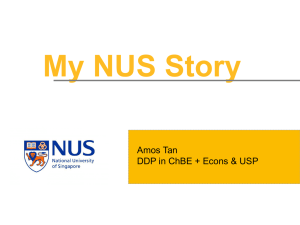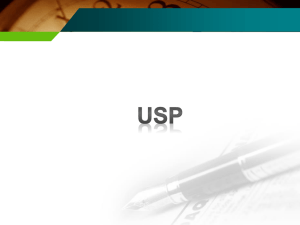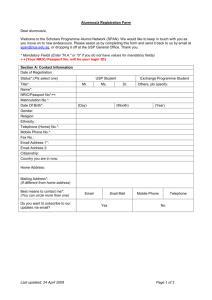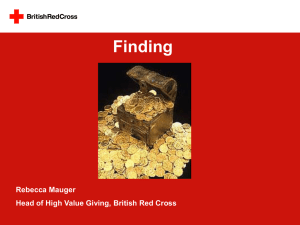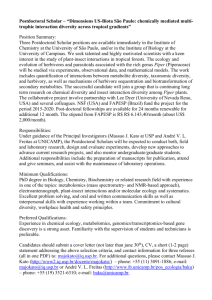DEVELOPING YOUR UNIQUE BUSINESS DIFFERENCE
advertisement
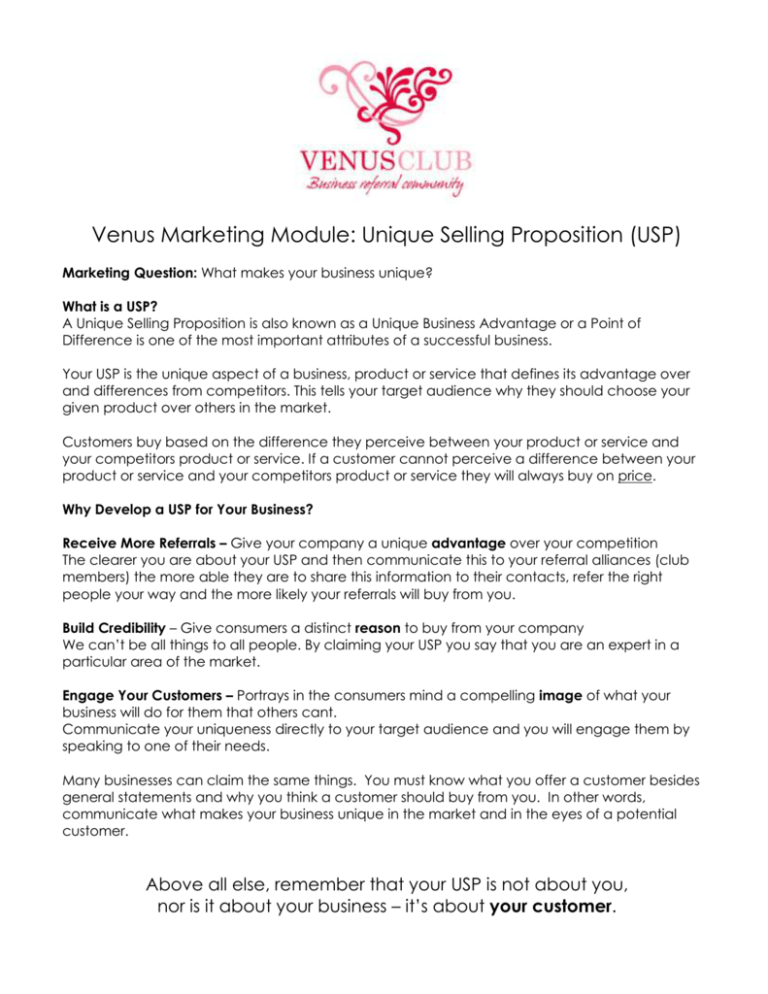
Venus Marketing Module: Unique Selling Proposition (USP) Marketing Question: What makes your business unique? What is a USP? A Unique Selling Proposition is also known as a Unique Business Advantage or a Point of Difference is one of the most important attributes of a successful business. Your USP is the unique aspect of a business, product or service that defines its advantage over and differences from competitors. This tells your target audience why they should choose your given product over others in the market. Customers buy based on the difference they perceive between your product or service and your competitors product or service. If a customer cannot perceive a difference between your product or service and your competitors product or service they will always buy on price. Why Develop a USP for Your Business? Receive More Referrals – Give your company a unique advantage over your competition The clearer you are about your USP and then communicate this to your referral alliances (club members) the more able they are to share this information to their contacts, refer the right people your way and the more likely your referrals will buy from you. Build Credibility – Give consumers a distinct reason to buy from your company We can’t be all things to all people. By claiming your USP you say that you are an expert in a particular area of the market. Engage Your Customers – Portrays in the consumers mind a compelling image of what your business will do for them that others cant. Communicate your uniqueness directly to your target audience and you will engage them by speaking to one of their needs. Many businesses can claim the same things. You must know what you offer a customer besides general statements and why you think a customer should buy from you. In other words, communicate what makes your business unique in the market and in the eyes of a potential customer. Above all else, remember that your USP is not about you, nor is it about your business – it’s about your customer. A USP Story Many years ago, a company in the US called Federal Express (FedEx) came up with a new concept – delivering packages overnight. Until then, if you wanted to ship a small package across the country you had to ship it on the airlines schedule. It might take up to several days to have your package delivered – and then it had to be picked up!! FedEx saw an opportunity here. All they had to do was convince the public that they could deliver packages in a speedier fashion. But they needed a slogan that would say that their package delivery service was better than those of the airlines. And they needed to say it in one simple phrase. After much thought, they decided that what differentiated them from their competitors was that they owned their own planes. This meant customers could ship and receive products on the customers schedule, and not the schedule of the airlines or buses. So what was the unique business advantage that FedEx chose? – “We have our own planes”. It didn’t fly with the public. People didn’t get it. “So you have your own planes,” they said. “What does that mean to me?” FedEx went back to the drawing board and came up with this – “When you absolutely, positively have to have it overnight.” That worked. The public responded, and the rest is commerce history. Consumers didn’t care if FedEx had their own planes. They didn’t care if their packages were even delivered by Poney Express. The benefit to the consumer was that the package was delivered over night right to the recipients’ door. There is a lesson here – one that you can use when creating your own unique business advantage. You need to always remember WIIFM: “What’s in it for me?” This is what a customer is looking for when he or she buys a service or product. Phrase your USP in those terms, and you’ll go a long way in creating an effective and successful unique selling proposition. Below are some additional aspects to consider when fleshing your USP. They’re called the four P’s. – Pricing, positioning, packaging and promotion.. Pricing If you are going to compete on price, don’t just say you’re the lowest – say why. For instance, perhaps you can sell at such a low price because of your ability to source product from the closeout industry, buying products at cents on the dollar. Play up to your uniqueness in your USP. Positioning The Marines are looking for a few good men – not all men, just a few, and only good ones. This is a great positioning statement which makes their “business” unique and differentiates them among the armed forces. Look for a similar positioning with your business. Perhaps your focus is gender based or age-based. Sell to a unique segment of the population – not to all of it. Packaging Take a common product that others sell and repackage it in a new way. For instance, take the iMac. Its jut a PC, but look at the packaging. Not only did it sell, but it sold at a premium price! It also had positioning statements: Get on the internet in 20 minutes! and Think Different! How Do You Develop Your USP? We have put together a list of questions you can ask yourself to start brainstorming ideas for creating your own USP. Using a pad and pencil, ask yourself the following questions and answer them as simply as you can. You’re not creating a corporate mission statement here, so keep your responses simple This is a starting point of a journey that some businesses take months to reach the end. 1. WIIFM…What is in it for me? If I were a customer what would make me buy from you? 2. What is our Uniqueness? Why is my business special? 3. Write down 10 reasons why customers currently buy from you 4. Why would someone buy from me instead of my competition? 5. Why did I think that my business would be better than my competition? 6. Why did I think it would succeed? 7. What’s a benefit to the consumer that I can deliver on? 8. What are the actual differences between you and your competitors? 9. What are the important processes in your business that you can tell your customers about 10.What do my competitors say about their businesses? MY UNIQUE BUSINESS DIFFERENCE One final thought; whatever you promise in your USP – be sure you deliver on it. Don’t make the mistake of adopting a USP that you can’t fulfill. This means making sure that everyone in your entire company knows and understands your USP and can act on it!
